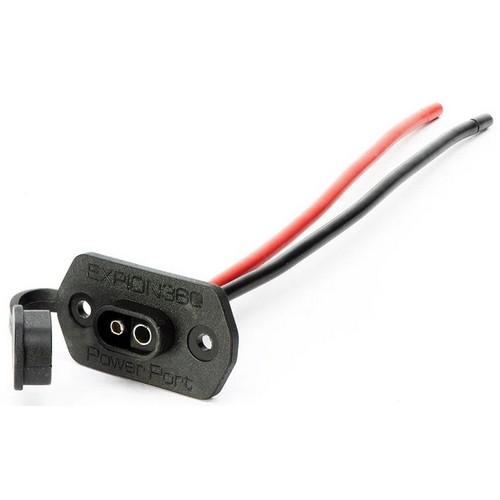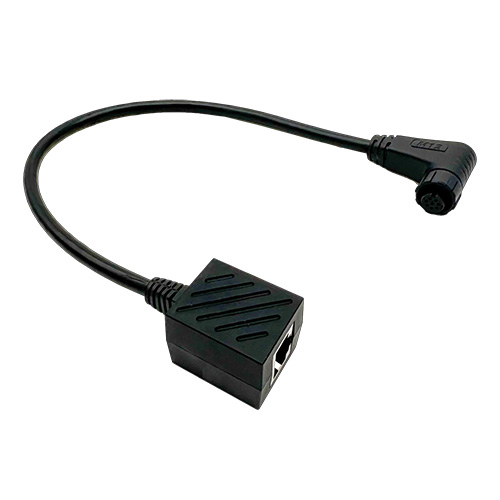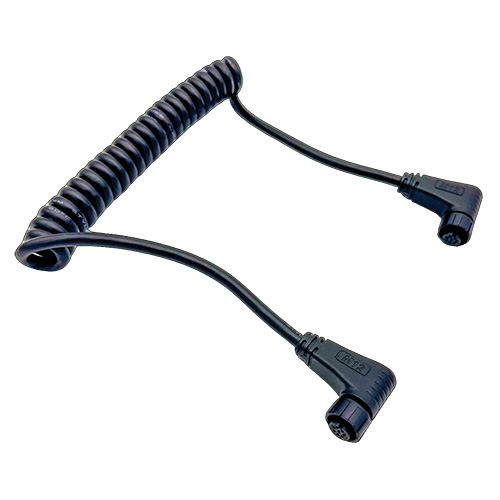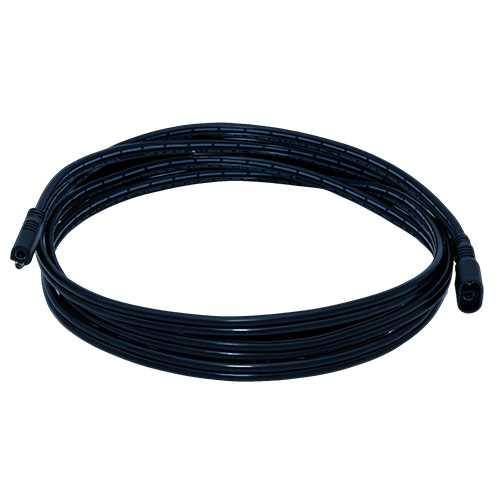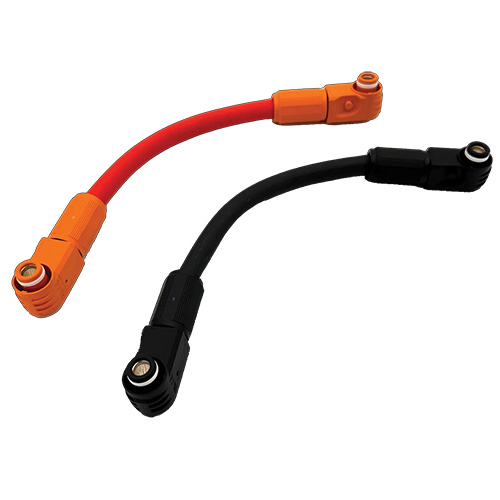Manufacturer Info
E360 SAE Single Port with Protective Cap
The SAE Single Port is for adapting a solar with a charge controller to a battery bank. The SAE port end will accept a popular solar panel SAE cable to make it easy to connect the solar panel to the battery bank.
The bare wire-positive end will need an inline fuse connector with a fuse installed before connecting to the battery-positive terminal. The holder and fuse must be sized appropriately for the SAE cable gauge according to the solar panel's maximum DC output potential. The bare wire negative end must be connected to a common ground if installed on an RV. The negative end can be connected directly to the negative battery post if the battery bank and solar panel are used in a portable application.
!!!Warning!!!
Please Ensure Correct Polarity
When working with SAE cables and connectors, it is crucial to pay close attention to polarity to avoid potential damage or hazards. Improper polarity can lead to reversed electrical flow, resulting in ineffective charging, equipment malfunction, or even electrical shorts.
WARNING: California's Proposition 65
The SAE Single Port is for adapting a solar with a charge controller to a battery bank. The SAE port end will accept a popular solar panel SAE cable to make it easy to connect the solar panel to the battery bank.
The bare wire-positive end will need an inline fuse connector with a fuse installed before connecting to the battery-positive terminal. The holder and fuse must be sized appropriately for the SAE cable gauge according to the solar panel's maximum DC output potential. The bare wire negative end must be connected to a common ground if installed on an RV. The negative end can be connected directly to the negative battery post if the battery bank and solar panel are used in a portable application.
!!!Warning!!!
Please Ensure Correct Polarity
When working with SAE cables and connectors, it is crucial to pay close attention to polarity to avoid potential damage or hazards. Improper polarity can lead to reversed electrical flow, resulting in ineffective charging, equipment malfunction, or even electrical shorts.
WARNING: California's Proposition 65



